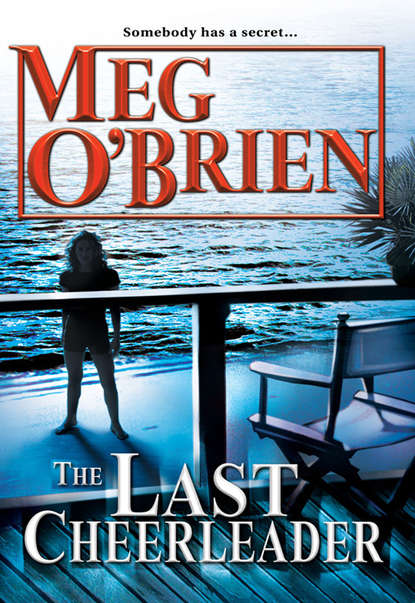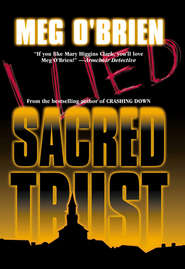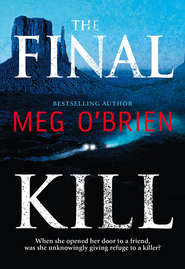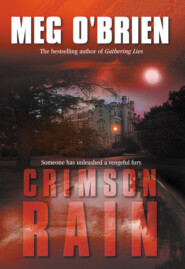По всем вопросам обращайтесь на: info@litportal.ru
(©) 2003-2025.
✖
The Last Cheerleader
Автор
Год написания книги
2018
Настройки чтения
Размер шрифта
Высота строк
Поля
As I’ve said, the fact that Tony was dead, too, was something that stunned me for several moments. Once I managed to collect my thoughts, however, I realized that my opportunity to get off those train tracks had come at last. Oh, it might be a while before I got my whole body off, grief being what it is. I might leave behind a leg or a foot at first, but I wouldn’t be trussed to the tracks any longer, and I’d have a chance to roll free.
If that sounds cold, it’s only because I’d learned to restrain my feelings for Tony over a long period of time—a matter of self-preservation, having been given so little encouragement from that side. He loved going to dinner with me, taking walks with me, even traveling with me. He even said often that he loved me. “Just not that way,” he would add. I’d begun to feel like one of those poor women who go on Montel Williams to reveal, at long last, their love for a male friend. Hoping, of course, that he’ll bubble over with passion and cry, “I’ve always loved you, too!” Inevitably, the friend does end up saying that, but adding the same as Tony: “Just not that way.”
Having lived through a brief and sexless marriage with Arnold, and then a “relationship” with Tony, whatever the hell kind that was, I’d begun to feel as if I had more heads than GORP, not to mention biceps in all the wrong places. Or maybe I was a Ms. Potato Head, with my eyes, ears and nose all screwed up, ugly as sin. The fact that my mirror didn’t support any of that paranoia helped—well-cared-for masses of reddish-blond hair like mine being “in” now, as they are. But there were days…
Now, given the scene before me in Tony’s apartment, I had to wonder—and not for the first time—were Tony and Arnold gay? I never was the kind of woman who immediately labeled a man gay if he wasn’t interested in my womanly charms. But why else would the two of them be here in Tony’s penthouse, and what else could the ornately carved Chinese sex toy be about?
The police, of course, wouldn’t tell me a thing except that there would be autopsies, and that forensics could take a few days. A Detective Dan Rucker was in charge. He looked to be thirtysomething and I guessed that by some standards—not mine—he might be considered cute. He had bright blue eyes and sandy hair that curled below his ears, and he wore an Anaheim Angels baseball cap that he kept putting on and taking off. Every time he took it off, he ran his fingers through his hair as if to make sure it was straight, but it never was. He sported at least a two-day growth of beard, and overall the look was a bit too scruffy for me. He smelled nice, though. Like oranges warming under a noonday sun.
If this were a crime novel, of course, I would have been drawn to the good detective immediately, scruffy or not. We’d have fallen into each other’s arms by sunset, and then we’d have gone off on a crime-busting romp together, to avenge the killing of my ex-husband and my…whatever.
This wasn’t a crime novel, though, and Detective Rucker might have smelled like an orange, but he acted like a sour lemon.
“We’ll need you to come down to the station in the morning to answer more questions,” he had said abruptly, not even looking at me as he paced off the room. He didn’t seem overly suspicious of me, even though I was so close to the deceased. The truth was, I got the distinct impression that the police were thinking of this as a “gay murder.” There had been several, beginning this past spring, and then two more since summer had arrived. Most were in West Hollywood, but one or two were in other areas. The sheriff’s department in West Hollywood had waged a campaign to catch the killers, and while they’d found some of the murders to be gay-bashings by gangs, other cases were still open.
I had gone to the police station this morning, as ordered, for further questioning. But afterward I wondered: Would justice be done for Tony and Arnold? What if it wasn’t a gay-oriented crime? What if it was something entirely different? And why had this happened to two men who were close to me?
I was staring out my office windows around ten-thirty and musing upon this when my phone rang, and a few seconds later my intercom buzzed. I’d asked Nia, my assistant, not to disturb me except for something important, so I knew I’d have to take the call, though it was the last thing in the world I wanted to do. I’d spent over an hour at the police station saying, “Yes, no, yes, no, I don’t know,” and “maybe.” Detective Rucker still hadn’t looked as if he’d had a shower or shaved, and I still wasn’t impressed by his attitude. He was short-tempered with me and talked as if I was taking up his valuable time, whereas he’d been the one to tell me to be there. He seemed to find it hard to sit still, and was up and down, up and down, as we talked. I’d left there on edge, as if I’d taken his ragged energy in and brought it to the office with me. I definitely didn’t feel like talking on the phone now, even though I knew I should, and why.
Paul Whitmore.
After a few minutes Nia stuck her head around the door. Her short black cut looked frazzled, and I knew she’d been running her pencil’s eraser through it in irritation.
“That’s Paul Whitmore on the phone,” she said, confirming my every fear. “You want me to tell him you’re tied up? He’s called a half-dozen times since I came in this morning.”
Nia came in at seven every morning because of the time difference between L.A. and New York. A lot of our business is done when editors are getting geared up back there, around ten o’clock or so. Nia fielded calls and returned ones that were important but didn’t need my personal touch.
“Don’t I wish I were tied up somewhere,” I replied with a sigh. “Like on a warm desert island with a delightful man tickling my naked body with palm leaves. Anything but dealing with an editor right now.”
Returning Nia’s smile, I added, “But no. I’ll talk to him.”
Sliding my feet off the desk and setting them squarely in my shoes, I stiffened my spine, reached for the phone and held the receiver to my ear. At the same time my eyes scanned my beloved, newish office, with its floor-to-ceiling windows overlooking the high-rises of Century City. My desk was a Louis XV, and facing it were the antique chairs on which my authors sat. On a small cherry-wood desk sign were these simple words engraved in gold: Mary Beth Conahan, Literary Agent. In a corner, a white and gold floor-to-ceiling cage held two lovebirds that cooed loudly, as if sounding a warning bell at the mere mention of the name Paul Whitmore—the most important editor in New York City.
The lovebirds had been given to me one Christmas by Tony, and of course I foolishly saw them as a “sign” that he loved me after all. Until I found that he’d given the same gift to his assistant, his maid, his typist and several other people, as a thank-you for the good work they’d been doing.
I wondered how long my stylish digs would last, now that Tony, the golden goose, was gone. The rest of my stable of authors, though exemplary in many ways, wasn’t in his best-selling category.
Putting a smile in my voice, I chirped, “Hello, Paul. What can I do for you?”
“For God’s sake, Mary Beth, what do you mean, what can you do for me? We’re in the middle of negotiations with Craig Dinsmore! I’ve been trying to reach you all morning!”
Paul Whitmore worked for Bronson & Bronson, one of the few publishing houses in New York City that, amazingly, still had deep pockets. As such, most agents bowed and kissed Paul’s feet the minute he phoned.
Most. Not me.
“I’m sorry, Paul,” I said softly with fake remorse. “Your last offer…it didn’t really sit well with my author. And when you didn’t call back yesterday afternoon, I assumed our negotiations were over.”
Whitmore’s voice, though still irritable, responded to my tone. “Of course they weren’t over,” he said more reasonably. “My dear, you know I love Craig Dinsmore’s book. Everyone in-house loves his writing. We just have to come to terms, Mary Beth.”
“But I don’t see how that’s possible,” I said, choosing not to take offense at the patronizing “my dear.”
“What do you mean, not possible? Anything is possible!”
“Not if you don’t come up with more money, Paul. Craig is firm on that.”
I tapped lightly on my chin with my favorite gold pen, studied my luxuriously sheer stockings and six-hundred-dollar shoes and took a deep breath. The truth was, Craig Dinsmore was on the verge of bankruptcy, and Paul had offered a high six figures for Lost Legacy, Craig’s true-crime book about a fallen mafia don. If the deal went through, it could save his neck. But the more desperate my authors became during negotiations, the more relaxed I had to be. And I wanted a solid seven figures. That was the one thing that would make Hollywood perk up its ears and clamor to make a movie out of Craig’s book.
Because the truth is, it doesn’t always matter how good or bad a book is. Once a seven-figure offer has been made and accepted, the news makes its way into Publishers Weekly and assorted media mags, and that’s the kind of money that talks here in Hollywood.
“Dammit, Mary Beth, did you hang up on me?” Paul Whitmore roared through the phone.
I gathered my wits and tried to mimic my cooing lovebirds again. “Of course not, Paul. I was just thinking.”
“I hope you’re thinking that we’ve made a very good offer, and that Craig Dinsmore should be happy for what he can get. Rumors have it he’s on the skids.”
“Oh, really?” I said in my best “ridiculous!” tone. “Where on earth did you ever hear something like that? Craig is doing extremely well, Paul. He’s just purchased a new home near Laguna Beach, you know. Not too far from the one Dean Koontz built a few years ago.”
“I don’t believe it.”
“Oh, for heaven’s sake, why would I lie?” I sure couldn’t tell him that Craig was holed up in a cheap motel over by the airport, writing his brains out in a push to survive. Or that I hadn’t yet told Craig about Paul’s six-figure offer. I knew he’d want to grab it and not try for more.
“Listen, Paul, I have calls coming in by the dozens. I’ll have to get back to you.”
“Wait.”
“I really have to—”
“Tell Craig Dinsmore we’ll come up by ten thousand. That’ll put him over the seven-figure mark, which I’m sure is what you’re angling for. I’ll also go from eight percent to ten percent on the paperback royalties. That’s the best we can do, Mary Beth, and it’s damn good.”
Screw you, I thought. If you’re willing to go another ten, another twenty won’t hurt a bit.
“I’ll pass the word along, Paul,” I said lightly. “That’s if I can rouse Craig. You know, he’s working round the clock to finish his next book, and he’s not always answering his phone.”
“Then send a messenger, Mary Beth! This is my final offer, and I need to know by five p.m. my time. The offer’s only good till then.”
“I’ll see what I can do, Paul. Ta.”
I hung up softly and sat thinking. Five his time meant two here, and since it was nearly eleven now, that gave me only three hours. Damn! My stomach was churning, and I realized I’d bitten off a nail during the call. I’d have to phone Craig and ask him if he wanted me to hold Paul Whitmore’s feet to the fire or accept what he said was his final offer. I personally didn’t believe it was final. Still, I couldn’t play fast and loose with Craig’s income without his consent, now that the offer was over seven figures.
I called out to Nia on the intercom and asked her to find Craig for me as quickly as possible.
“I’m already on it,” she said. “He still isn’t answering his phone, and his machine’s turned off. I’m trying all the bars around that area now.”
“You think he’s started drinking again?” I asked worriedly.
“Not necessarily. I just don’t know where else to start. And you know how he likes to hang out in bars and talk.”
Craig became a near hermit last year when he began to attend AA meetings. Then, in the fall, he told me he wasn’t going to the meetings anymore. He felt that saying “I am an alcoholic” only imprinted it on his mind—thus making it a fact that could never be erased, leaving no hope for a “cure.”









